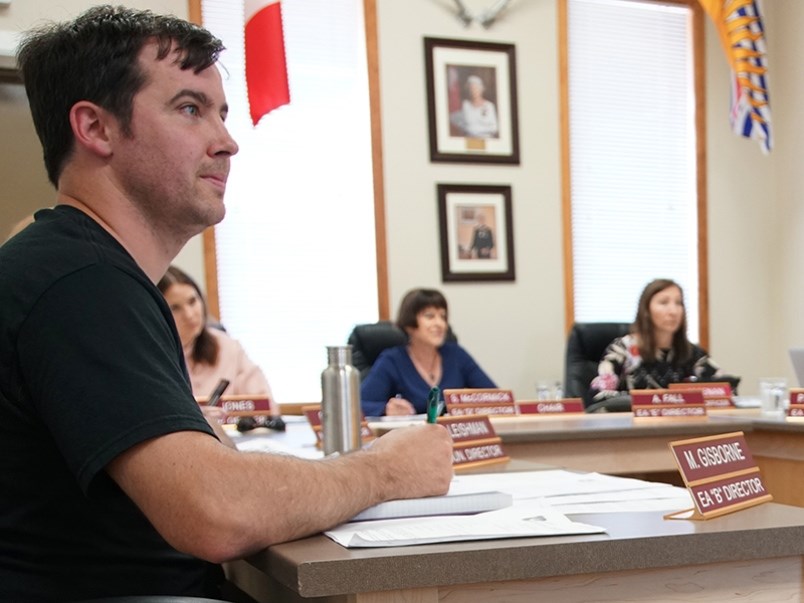qathet Regional District’s board of directors has adopted a code of conduct.
At the April 30 meeting of the board of directors, after the introduction of a motion to adopt the code of conduct, Electoral Area B director Mark Gisborne expressed opposition to it. He said there are five words that form the foundation of responsible conduct for local governments in BC. These include integrity, accountability, respect, leadership and collaboration, he added.
“The proposed code of conduct does not even contain the words integrity, accountability, leadership or collaboration,” said Gisborne. “It does, however, use the word respect a half dozen times with no definition.
“There is an old saying: respectful children should be seen, not heard. It is easy to be respectful if you never speak, but then you have no leadership. You have no collaboration, accountability, and you have no integrity. Those words are not present in this code of conduct.”
Gisborne said this code of conduct, as proposed, only emphasizes the issues “we are having at this board. It does not help resolve them. A poorly done code of conduct makes a bad situation even worse.”
Gisborne said the five words he outlined create the four key foundational principles of responsible conduct. He said this was the result of the Union of British Columbia Municipalities’ working group on responsible conduct.
“I cannot support this code of conduct,” said Gisborne. “It doesn’t have the foundational principles to get us through these issues. Therefore, I am going to make a motion that the board refer the draft code of conduct to the May committee of the whole meeting.”
Gisborne’s motion was not seconded.
Board chair Patrick Brabazon asked if there were any other directors who wanted to speak and none voiced the desire to do so. Brabazon put the code of conduct to a vote and it carried, with Gisborne opposed.
The code of conduct applies to all meetings and assemblies of the regional district and to any person attending those meetings and assemblies.
The code of conduct states that assemblies shall provide an environment of transparent and healthy debate on matters requiring decision-making. It further states that all meetings will be conducted in a manner consistent with the regional district’s procedure bylaw and will provide adequate and substantive opportunity for persons to state their position on any matter before the assembly.
The regional board working committee that formulated the code of conduct opted to take a concise approach to the document, which is a page and a half in length.



